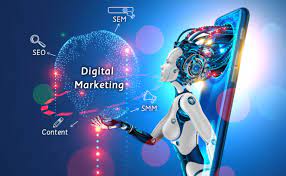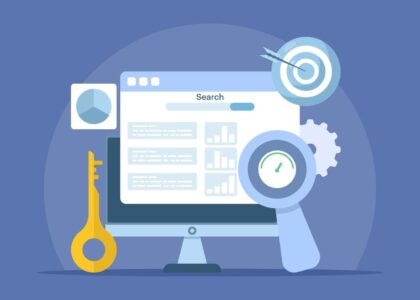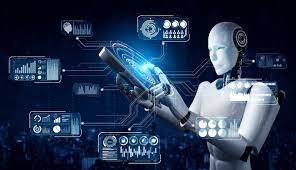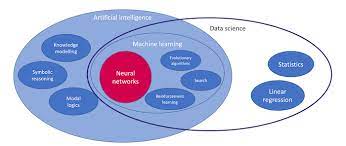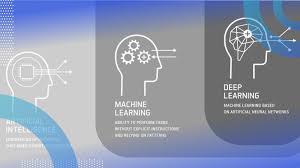The Role of AI in Digital Marketing
Artificial Intelligence (AI) is revolutionising the digital marketing landscape, offering unprecedented opportunities for businesses to engage with their audiences more effectively. By leveraging AI technologies, marketers can enhance customer experience, optimise campaigns, and drive better results.
Personalised Customer Experiences
One of the most significant impacts of AI in digital marketing is its ability to deliver personalised experiences. By analysing vast amounts of data, AI can identify patterns and preferences in consumer behaviour. This enables marketers to tailor content and recommendations to individual users, enhancing engagement and increasing conversion rates.
Enhanced Data Analysis
AI tools excel at processing large datasets quickly and accurately. This capability allows marketers to gain deeper insights into customer behaviour and campaign performance. With AI-powered analytics, businesses can make data-driven decisions, refine their strategies in real time, and maximise return on investment (ROI).
Automated Customer Interactions
AI-driven chatbots are transforming customer service by providing instant responses to inquiries around the clock. These intelligent bots can handle a wide range of tasks, from answering common questions to guiding users through purchasing processes. This not only improves customer satisfaction but also frees up human resources for more complex tasks.
Optimised Advertising Campaigns
AI algorithms are increasingly used to optimise advertising campaigns across various platforms. By analysing user data and behaviour, AI can determine the best times and channels for ad placements, segment audiences more effectively, and even automate bidding strategies. This results in more efficient ad spend and higher conversion rates.
Content Creation and Curation
AI is also making strides in content creation by generating data-driven articles, social media posts, or product descriptions. While human creativity remains essential for storytelling, AI can assist by providing insights into trending topics or suggesting content improvements based on audience engagement metrics.
The Future of AI in Digital Marketing
The integration of AI into digital marketing is still evolving. As technology advances, we can expect even more sophisticated tools that offer deeper insights and greater automation capabilities. Businesses that embrace these innovations will be well-positioned to stay ahead in an increasingly competitive market.
In conclusion, AI is not just a trend but a fundamental shift in how digital marketing operates. By harnessing the power of AI technologies, marketers can enhance their strategies with precision targeting and personalised experiences that resonate with consumers.
Exploring the Impact of AI on Digital Marketing: Enhancing Customer Experience, Data Analysis, and Future Strategies
- 1. How can AI improve customer experience in digital marketing?
- 2. What role does AI play in data analysis for digital marketing?
- 3. How are chatbots powered by AI transforming customer interactions in digital marketing?
- 4. In what ways can AI optimise advertising campaigns in digital marketing?
- 5. How is AI being used for content creation and curation in digital marketing?
- 6. What does the future hold for the integration of AI in digital marketing strategies?
1. How can AI improve customer experience in digital marketing?
AI can significantly enhance customer experience in digital marketing by providing personalised interactions and tailored content. Through the analysis of vast amounts of data, AI systems can identify individual preferences and behaviours, allowing businesses to deliver customised recommendations and offers that resonate with each customer. Moreover, AI-powered chatbots and virtual assistants offer instant support and assistance, ensuring that customers receive timely responses to their queries at any time of day. This level of personalisation and responsiveness not only increases customer satisfaction but also fosters loyalty by making customers feel valued and understood. As a result, businesses can build stronger relationships with their audience, ultimately leading to improved retention rates and increased customer lifetime value.
2. What role does AI play in data analysis for digital marketing?
AI plays a crucial role in data analysis for digital marketing by enabling businesses to process and interpret vast amounts of data quickly and accurately. Through machine learning algorithms and advanced analytics, AI can identify patterns, trends, and insights that might be missed by human analysts. This allows marketers to understand consumer behaviour more deeply, segment audiences more effectively, and tailor campaigns to meet specific needs. AI-driven data analysis also facilitates real-time decision-making, allowing businesses to adjust their strategies dynamically for optimal results. By harnessing AI’s capabilities in data analysis, digital marketers can enhance targeting precision, improve customer engagement, and ultimately drive higher conversion rates.
3. How are chatbots powered by AI transforming customer interactions in digital marketing?
AI-powered chatbots are significantly transforming customer interactions in digital marketing by providing instant, personalised, and efficient communication with users. These intelligent bots can handle a wide array of tasks, such as answering frequently asked questions, guiding customers through purchasing processes, and offering tailored recommendations based on user data. By operating 24/7, chatbots ensure that customers receive immediate assistance at any time of day, enhancing user satisfaction and engagement. Moreover, they free up human resources by managing routine inquiries, allowing businesses to focus on more complex customer service issues. As a result, AI-powered chatbots not only improve the overall customer experience but also contribute to increased efficiency and cost-effectiveness in digital marketing strategies.
4. In what ways can AI optimise advertising campaigns in digital marketing?
AI can optimise advertising campaigns in digital marketing through several key strategies. By utilising advanced algorithms, AI can analyse vast amounts of data to identify patterns and trends in consumer behaviour, allowing for precise audience targeting. This ensures that ads are shown to the most relevant users, increasing the likelihood of engagement and conversion. Additionally, AI can automate bidding strategies in real-time, adjusting bids based on performance metrics to maximise return on investment. AI also enables dynamic ad creation, tailoring content to individual preferences and contexts, which enhances personalisation and relevance. Furthermore, predictive analytics powered by AI can forecast future trends and consumer needs, enabling marketers to proactively adjust their campaigns for optimal results. Overall, AI streamlines the advertising process by making it more efficient and effective.
5. How is AI being used for content creation and curation in digital marketing?
AI is increasingly being utilised in digital marketing for content creation and curation by automating and enhancing various processes. Through natural language processing and machine learning algorithms, AI can generate written content such as articles, social media posts, and product descriptions, providing marketers with a scalable solution for producing high-quality material. Additionally, AI tools can analyse audience engagement data to identify trending topics and suggest content ideas that resonate with target audiences. For curation, AI can sift through vast amounts of online content to select and recommend the most relevant pieces to share with users, ensuring that businesses consistently deliver valuable information to their followers. This not only saves time but also ensures a more strategic approach to content marketing.
6. What does the future hold for the integration of AI in digital marketing strategies?
The future of integrating AI into digital marketing strategies promises to be transformative, with AI expected to become even more deeply embedded in marketing processes. As AI technologies continue to advance, marketers will have access to more sophisticated tools for data analysis and customer insights, enabling hyper-personalised marketing efforts that can anticipate consumer needs and preferences with remarkable accuracy. Automation will likely play a larger role, streamlining everything from content creation to customer interactions, freeing up human resources for strategic planning and creative tasks. Furthermore, AI’s ability to analyse vast amounts of data in real time will enhance decision-making capabilities, allowing for agile adjustments to campaigns based on live feedback and performance metrics. As privacy concerns grow, the future may also see the development of AI solutions that balance personalisation with consumer privacy, ensuring ethical data use while delivering tailored experiences. Overall, the integration of AI in digital marketing is set to revolutionise how brands connect with their audiences, making marketing efforts more efficient and effective than ever before.


